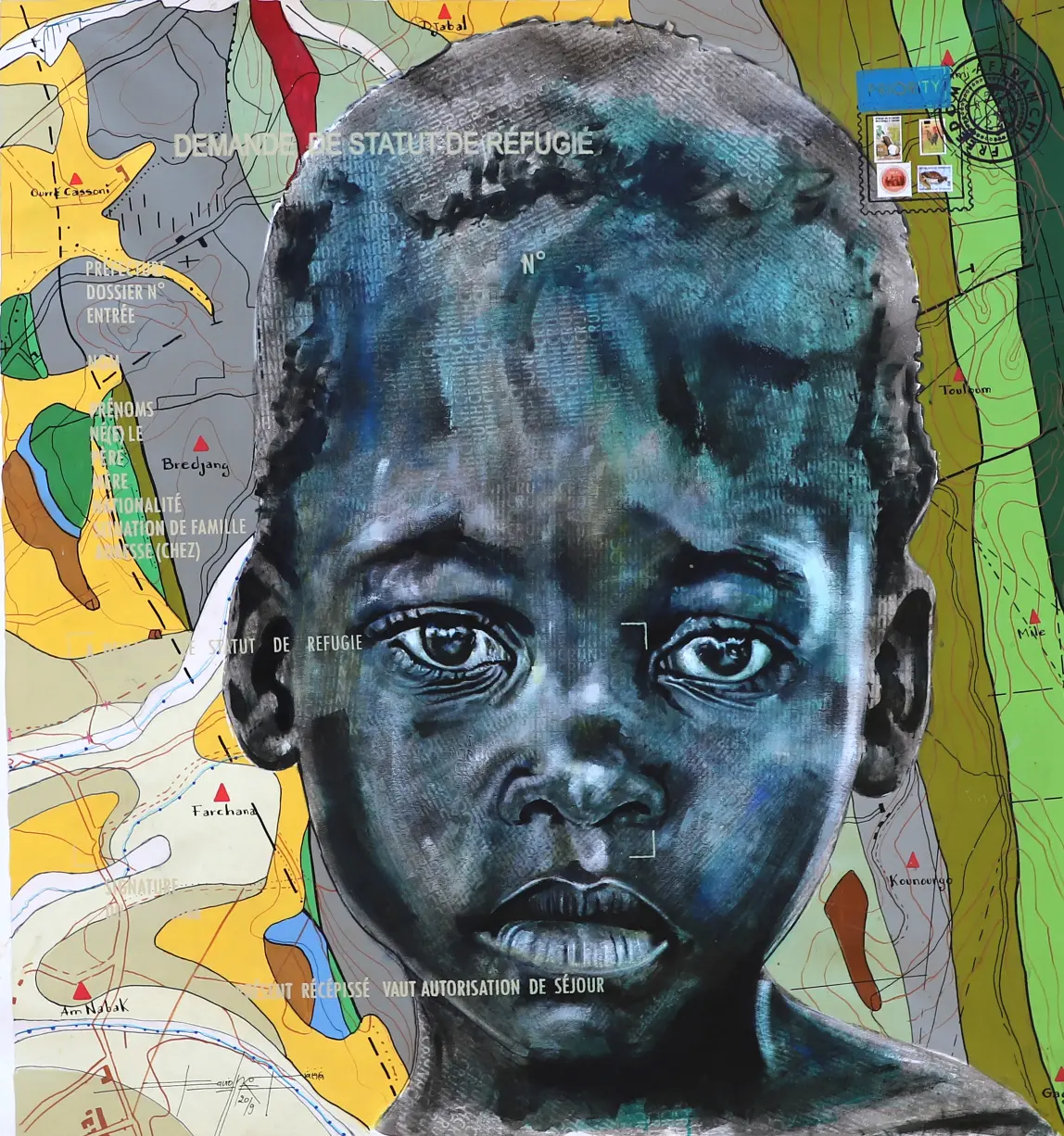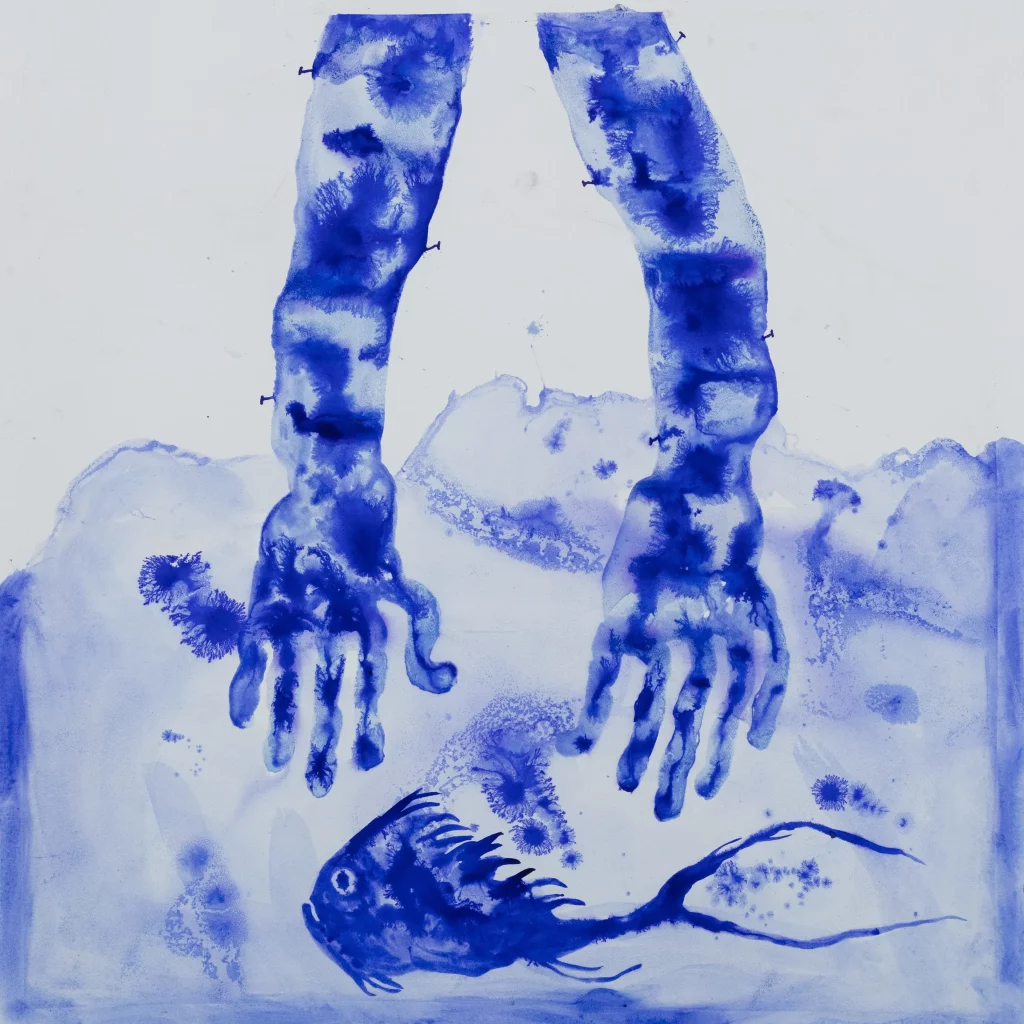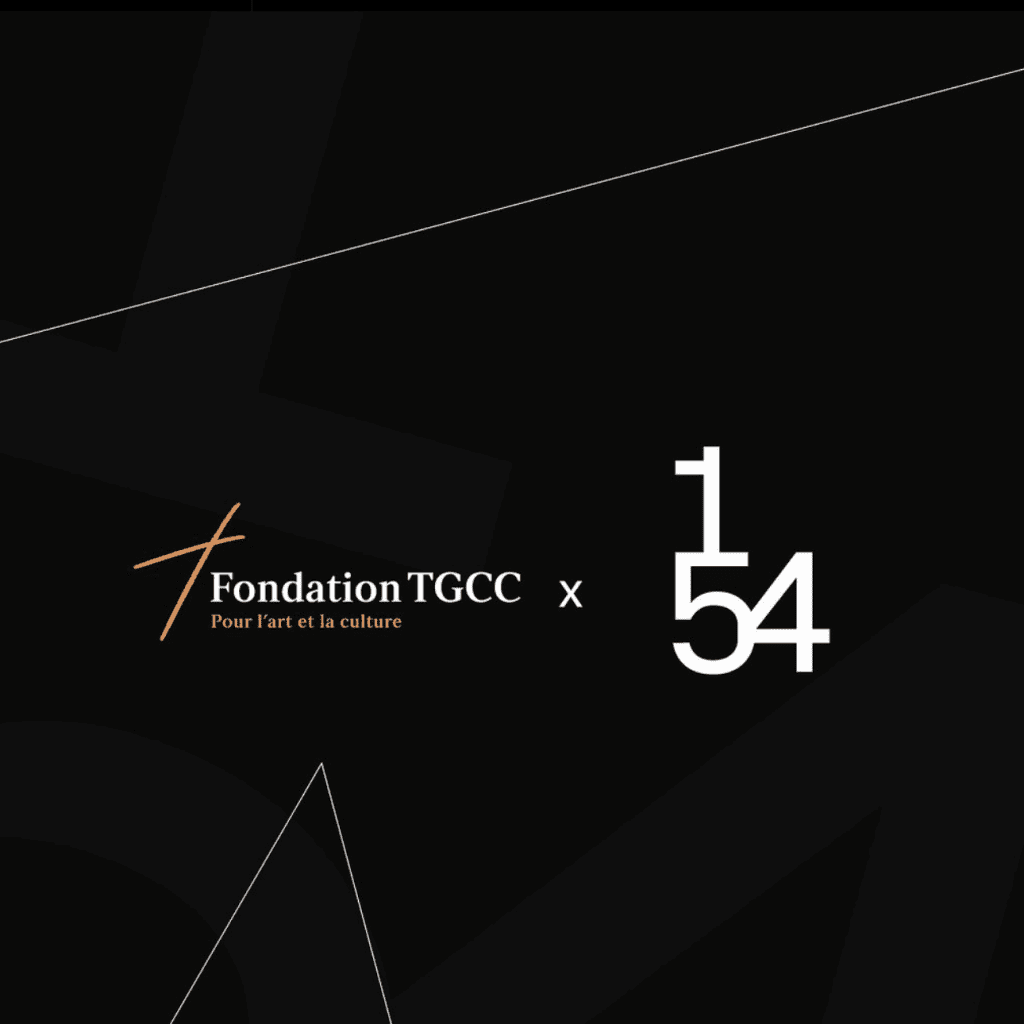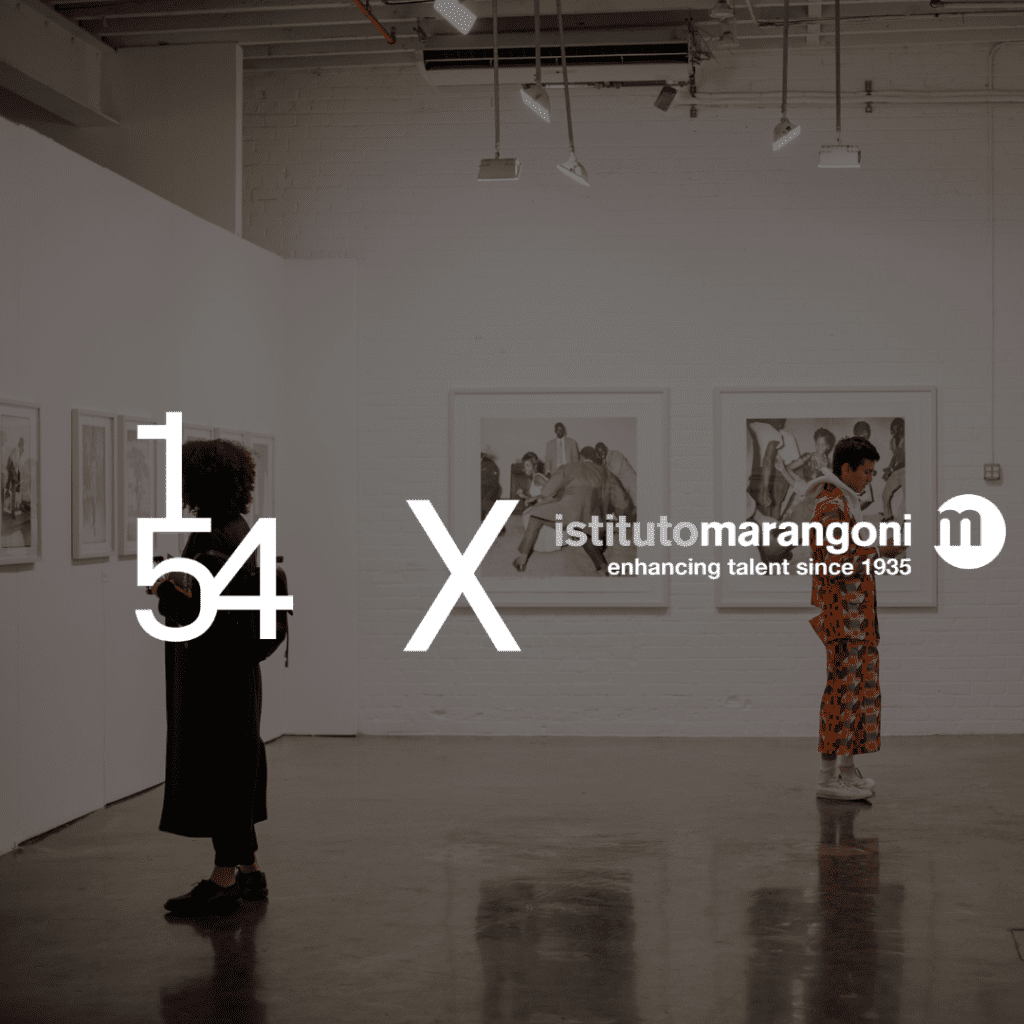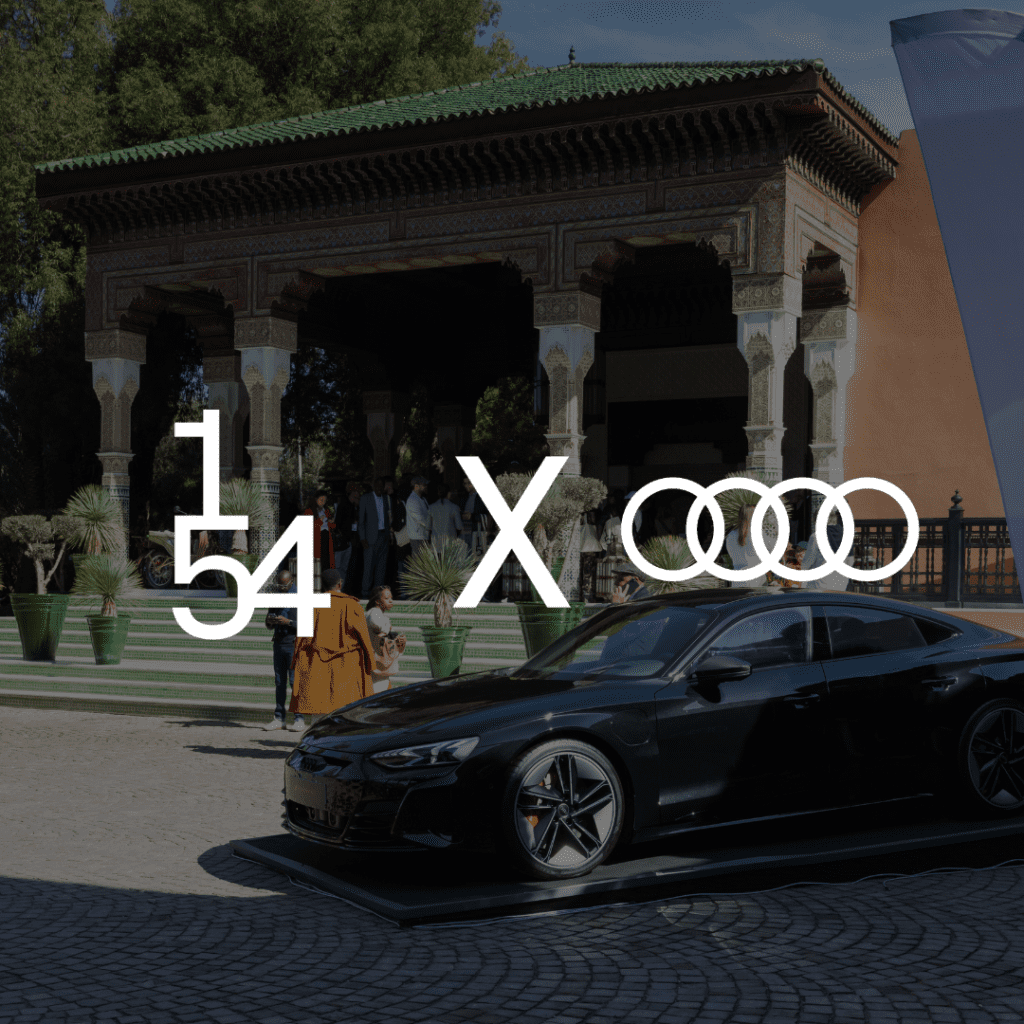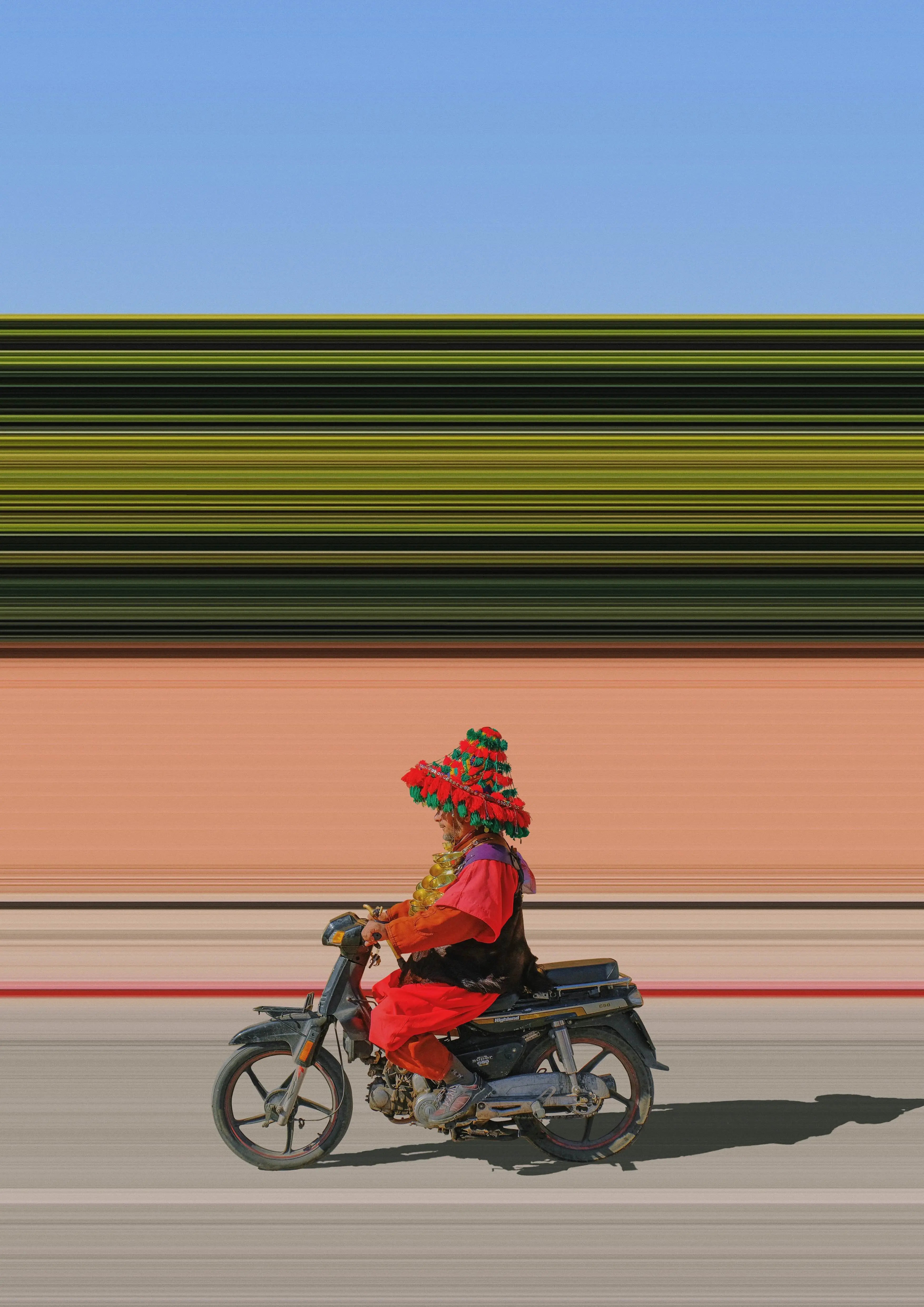Paris-based Afikaris is among the newcomers galleries who will take part for the first time to the fair this coming February. Founder and director, Florian Azzopardi, will present a solo show by Cameroonian artist Jean-David Nkot. We had a conversation with both of them on their first impressions and expectations on the fair, and Jean-David’s work and artistic vision.

Florian, how did you first hear of 1-54 and what will you look for over this Moroccan experience?
FA – You can’t miss 1-54 when you get interested about contemporary arts in Africa. I came for the first time to visit the London edition in 2018 when I was still launching the company, then I returned to visit it in Marrakech last year, and now – just one year later – it is our turn to exhibit!
We are very excited to take part for the first time in 1-54, and we thank then organisation for trusting young galleries like ours. It is a significant milestone for us to be part of this event and we have many expectations from it. We expect that a large part of the ecosystem of the contemporary art scene interested by Africa will be there, and hope to meet them.
Then, we want to give deserved visibility to the artist we represent. Jean-David Nkot is an artist we are supporting and promoting since the creation of the company and with whom we have developed a very special relationship. His career is currently on a great trajectory and we want this solo show to be a pivot for him. Finally, we want to set up our image as an established and trusted player on the African art scene, and this is quite crucial for our gallery as we are only working with Africa and are just 1,5-year-old!

Jean-David Nkot practice interrogates the issues inherent to borders and the pre- and post-colonial partition of the African continent. His layering of maps and humanised faces further highlights the contemporary repercussions of the violent nation-building processes leading to issues such as mass migration to Europe, migrations and sufferings but also of hope. His bright-coloured canvases raise awareness to the issue of borders while simultaneously providing a backdrop that shows the seeming insignificance of the individual in such an abstract and depersonalised representation of reality.

Jean-David, since your graduation from the National School of Arts of Paris-Cergy, where attending the post graduate master “Moving Frontiers”, you have been exploring the theme of ‘borders’. This is a wide research theme, not only in geography but also of growing importance in the contemporary cultural and human context. To what extent the “Moving Frontiers” program played a key role in the progression of your work and career?
JDN – The “Moving Frontiers” program has been important in the evolution of my work. It was as a result of this project that the theme of migration imposed itself on me. It also opened the doors of one of the most important residences of my career at the Cité Internationale des Arts. The latter has also given birth to the project “The undesirables” which continues with the new series “The Shadows of Space” which will be presented by Afikaris in Morocco at 1-54 Marrakech Art Fair in February 2020.

Your series “Juju connections” narrates the trafficking of Nigerian women into prostitution in Europe. The large-scale road maps impose these young girls’ drama in the eyes of all spectators and force us to consider and denounce this human exploitation. Do you consider yourself a politically engaged artist?
JDN – I would not go as far as saying that I am a committed artist. What I do know is that before being an artist, I am a human being who lives in a society, in a space in a changing world. Thus, transformation is a subject that speaks to me and concerns me. I want things to change and I need to talk about it, make this problem visible and create dialogue spaces to discuss it.
Art offers us the possibility and the means, both ideological and aesthetic, to say things that speak to everyone, and this is at this specific moment that my artistic practice takes place. I’m just using these tools to draw attention to this time of changes. As an artist, I would like to immortalise these changes so that no one is ignorant of what happened during this period.

You paint from photographs of people in your neighbourhood. Why this method and how do you choose your models?
JDN – For me, working from a photo gives me the possibility of continuing to observe my subjects, even after their departure because this is the only thing that allows me to still have a connection with them. My subjects are above all friends, brothers, companions for going out. It is in these moments of sharing – when everyone talks about their dreams, their projects, how they would like to become a man who could also help their family – that the discussion takes shape and makes it possible to realise that most dream of going to Europe and some have already travelled more than once. The photo sessions result from these long discussions, sometimes in groups, sometimes in private.

How does your work tend to evolve? Can you give us a heads-up on any upcoming projects in the near future?
JDN – I cannot really say towards which direction my work tends. I know that it will evolve over the course of my meetings and my readings. For the moment, I let my work leading me to new horizons. This does not mean that I have no plans. For example, in May, my work will be presented at 1-54 New York and then in London. I also have other projects already planned but I cannot say more at the present time.
